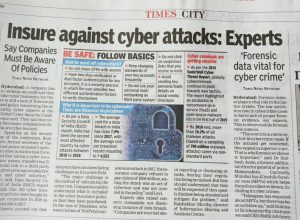Healthcare organizations continue to face relentless cyberattacks owing to the immense value placed on patient health information on the dark web. Patient records have almost everything the attacker needs to carry out sophisticated insurance fraud schemes, purchase medical supplies or drugs, or commit other types of fraud including outright identity theft.In addition to the theft of personal health information (PHI), healthcare organizations are increasingly faced with ransomware attacks that cripple operations and make it nearly impossible to deliver patient care. Because of the grave risks to patient care and safety in the event of a cyberattack, healthcare organizations are required to be HIPAA compliant.
Continuous compliance with HIPAA has been shown to help healthcare organizations secure their environment from cyberattacks; meeting the requirements of HIPAA requires most businesses to set up strong processes, methods and controls to assure auditors that security and integrity of PHI are assured.
However, because of the technical skills gap – the difficulty in hiring, training and retaining skilled cybersecurity talent – healthcare organizations are often faced with the difficult choice of merely passing a HIPAA audit by adopting check-box practices or expending resources to implement continuous compliance practices.
On the one hand, check-box compliance practices help healthcare organizations meet the short-term goal of passing a HIPAA audit. However, though these practices help healthcare organizations pass the audit, they are often not sufficient to truly secure their environment.
To do this, healthcare organizations must implement continuous compliance practices, such as file integrity monitoring (FIM) and secure configuration management (SCM). Robust file integrity monitoring and secure configuration management can help healthcare organizations truly secure their environment whilst achieving continuous HIPAA compliance.
However, due to the technical skills gap, healthcare organizations often don’t have the necessary resources to devote to continuous compliance.
Managed security providers help healthcare organizations by acting as an extension of their team, providing end-to-end visibility and ensuring that their environments are not only compliant with HIPAA but that their critical assets including EHR systems are secure. And all of these benefits are available to healthcare organizations without the concern about hiring training and retaining skilled staff.
Read more:https://www.tripwire.com/state-of-security/regulatory-compliance/hipaa/making-continuous-hipaa-compliance-easy-with-expertops/?utm_source=The+State+of+Security+Newsletter&utm_campaign=cede5e76f9-EMAIL_CAMPAIGN_2018_07_02_08_12&utm_medium=email&utm_term=0_a2892d69fb-cede5e76f9-271348669



